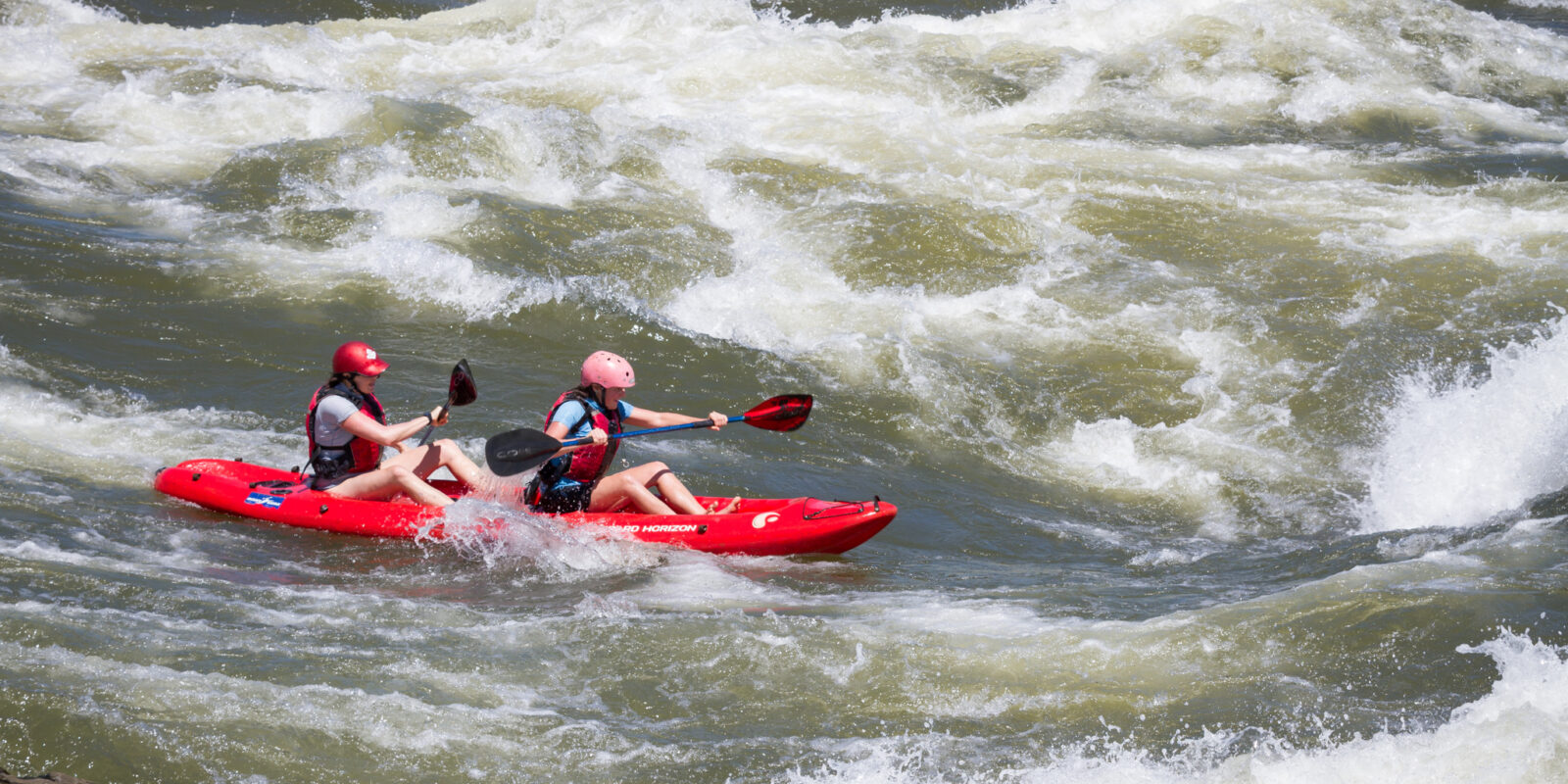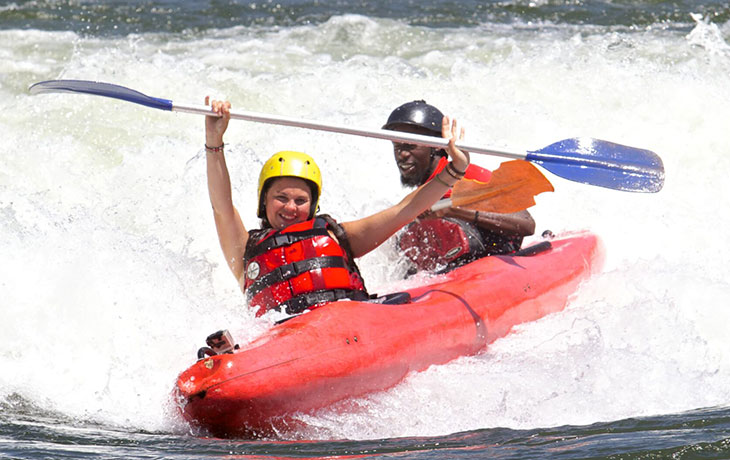Family-Friendly Activities for Kayaking in Jinja for Solo Travelers
\Where the Nile Meets Adventure
There is a rare kind of magic that unfolds on the waters of the Nile, particularly in Jinja, a town celebrated as the adventure capital of East Africa. It is a place where nature’s power, human resilience, and cultural vibrancy converge to create experiences unlike any other. For families, Jinja has always been a safe haven of joy and bonding, offering activities that nurture connection across generations. Yet, beneath this family-friendly appeal lies a surprising revelation—many of these activities are equally transformative for those who journey alone.
The solo traveler who finds themselves in Jinja does not simply paddle across calm waters or brave the occasional rapid. They embark on a profound journey where family-oriented spaces are reimagined as sanctuaries of solitude, reflection, and cultural exchange. Kayaking, a water activity often associated with group fun, becomes a deeply personal exploration for those who travel without company. This guide unveils how Jinja’s family-friendly kayaking adventures simultaneously serve as a rewarding retreat for solo travelers who seek meaning beyond adrenaline.
Jinja: The Spirit of the Nile’s Gateway
Jinja’s significance cannot be overstated. It is the town that proudly cradles the source of the River Nile, the world’s longest river whose waters have carried civilizations, inspired explorers, and nurtured countless communities across Africa. This legacy positions Jinja not only as a hub of adventure but as a cultural and historical landmark where every current carries centuries of stories.
The landscapes surrounding Jinja enhance this aura of significance. The rolling hills, vibrant farmlands, and glistening waters of Lake Victoria provide a scenic backdrop that amplifies the sense of arrival for travelers. It is within this rich setting that kayaking thrives, drawing families eager to bond and solo adventurers ready to test themselves.
The Family-Friendly Kayaking Appeal
Kayaking in Jinja has been designed to accommodate families of all ages. The waters near the source of the Nile provide stretches of calm, safe for beginners and children. Experienced guides ensure that the experience remains inclusive, offering training, protective gear, and well-structured itineraries. Families find reassurance in this safety, allowing them to relax and immerse fully in the moment.
Yet, while the design may appear family-oriented, its inclusivity becomes a blessing for solo travelers as well. Those who venture alone are embraced into groups, transforming what could have been an isolated experience into one of shared laughter, teamwork, and support. This dynamic allows solo travelers to enjoy the warmth of family-centered environments while still retaining their independence.
Kayaking as a Solo Traveler: The Hidden Depth
For the solo adventurer, kayaking in Jinja becomes a journey that extends beyond sport. It represents courage to step into spaces typically associated with families and rediscover them in personal, meaningful ways. The rhythm of paddles striking the Nile’s surface becomes a metaphor for resilience, while the vast openness of the water mirrors the freedom that solo travel often seeks to embrace.
The communal nature of family-friendly kayaking also benefits those traveling alone. Solo travelers are often integrated into family groups during excursions, finding themselves welcomed by the warmth of strangers. Conversations unfold easily, laughter becomes shared, and bonds—though fleeting—are formed in ways that transform the sense of solitude into connectedness.
In moments where the kayak drifts into quiet stretches of water, solitude takes on another dimension. The solo traveler reflects not on loneliness but on the beauty of independence. The water becomes a mirror for inner stillness, while the distant laughter of families on the river reminds them that community and solitude can coexist in harmony.
Cultural Immersion Through Kayaking
Kayaking in Jinja is not confined to the thrill of water. It opens doors to cultural encounters that enrich the solo journey. Families often combine their excursions with visits to local communities along the Nile, where fishermen demonstrate traditional methods of casting nets and preparing boats. Solo travelers who join these activities are offered intimate glimpses into daily life, realizing that kayaking serves not only as an adventure but as a bridge between visitors and communities.
Food adds another layer to this cultural immersion. Lakeside stops during kayaking often lead to shared meals of freshly prepared fish, roasted plantains, and tropical fruits. While families see these meals as bonding moments, solo travelers discover them as opportunities to engage, converse, and learn. Every shared plate becomes an invitation into Uganda’s culinary identity, revealing how water sustains not only adventure but also sustenance and tradition.
The Transformative Power of Nature
The natural beauty of Jinja amplifies the impact of kayaking. The Nile’s expanse shifts from calm reflective waters to playful rapids, while lush riverbanks display an abundance of birdlife and vegetation. Families marvel at this spectacle together, yet solo travelers experience it differently. They discover that solitude sharpens the senses, allowing every rustle of leaves, every bird call, and every shimmer on the water’s surface to become heightened moments of connection with nature.
The changing moods of the Nile also shape the solo journey. During sunrise, the water glows with soft hues, creating peaceful stretches perfect for quiet reflection. Midday brings activity and energy, mirroring the traveler’s physical exertion. By evening, sunsets paint the horizon in fiery tones, offering closure that feels symbolic of personal growth. In each phase, nature becomes not just a backdrop but an active participant in the journey.
Best Time for Kayaking in Jinja
The timing of a kayaking trip in Jinja can greatly influence the experience. The dry months from December to February and June to September are considered ideal, with calm weather, clearer skies, and safer navigation of waters. For families, this period ensures that children and less experienced kayakers can enjoy without concern for unpredictable conditions.
Solo travelers benefit equally from the dry season, as the stability of weather allows for extended adventures without interruption. Campsites along the Nile are more accessible, and cultural visits unfold with ease.
However, the wet seasons from March to May and October to November reveal a different charm. The landscape becomes more vibrant, the river swells with dramatic energy, and fewer crowds provide greater intimacy. For solo travelers who prefer quieter encounters and raw natural beauty, this season may offer the most rewarding perspective, even if the adventure demands greater resilience.
Safety, Comfort, and Belonging
Safety is the cornerstone of Jinja’s kayaking reputation. Professional guides, thorough training, and reliable gear ensure that participants are always secure. Families are reassured, and solo travelers find confidence in knowing that they are supported by expertise.
Yet safety here extends beyond physical well-being. For solo travelers, emotional safety also matters. Being welcomed into groups, having guides who treat individuals as part of a collective, and finding inclusivity in family-centered activities foster a sense of belonging that neutralizes the potential loneliness of solo travel.
Comfort is also nurtured through accommodation and hospitality. Riverside lodges, often designed with families in mind, provide communal spaces where solo travelers naturally blend into conversations and exchanges. Nights by the campfire, shared storytelling sessions, and collective meals transform comfort into community, reminding solo adventurers that journeys need not always be solitary.
Kayaking as Storytelling and Self-Discovery
Every kayak journey becomes a story waiting to be told. For families, it becomes a collective memory. For the solo traveler, it becomes a narrative of personal triumph and introspection. Each paddle stroke tells a story of courage, each rapid overcome becomes a metaphor for resilience, and each quiet drift along the river becomes a reflection of inner peace.
Photography enhances this storytelling dimension. Families capture group portraits, while solo travelers focus on the intimate details—the sparkle of sunlight on water, the candid expressions of children learning to paddle, or the solitary bird perched on reeds. Such photographs preserve memories that go beyond the visual; they capture emotions, growth, and perspective.
Journaling adds another dimension. Solo travelers often find themselves writing about the silence of the Nile at dawn, the camaraderie of strangers, or the transformative blend of solitude and community. These reflections extend the impact of the journey long after it ends, offering a personal record of how kayaking in Jinja shaped their understanding of self.
Why Solo Travelers Should Embrace Family-Friendly Activities
It may seem counterintuitive for a solo traveler to seek out family-oriented activities. Yet, in Jinja, this paradox becomes a strength. Family-friendly activities are designed to be safe, inclusive, and nurturing—all qualities that benefit solo adventurers. The sense of warmth, shared experience, and guided structure provides reassurance that allows solo travelers to relax and focus on the deeper meaning of their journey.
At the same time, the presence of families does not overshadow solitude. Solo travelers can engage with groups when they wish or withdraw into the reflective space of the river when desired. This flexibility transforms kayaking into an experience that balances independence with community, adrenaline with reflection, and adventure with cultural learning.
A Journey of Connection and Solitude
Kayaking in Jinja is often celebrated as a family-friendly adventure, but for the solo traveler, it becomes something far more profound. It is an opportunity to discover courage on the water, to embrace cultural encounters along the Nile, and to balance solitude with the warmth of community. Families find joy in shared paddles, while solo travelers find meaning in independence that coexists within collective experiences.
The Nile, with its timeless flow, teaches that adventure is not limited by companionship. In Jinja, kayaking proves that family-friendly spaces can be sanctuaries for solo reflection, that shared meals can become cultural exchanges, and that rapids overcome alone can feel like triumphs over life’s broader challenges.
For those who seek to turn this balance of culture, adventure, and self-discovery into reality, it is recommended to book Africa tours and safaris through WildHorn Africa, ensuring that every solo traveler’s journey through Jinja’s waters is not only safe but deeply transformative.






